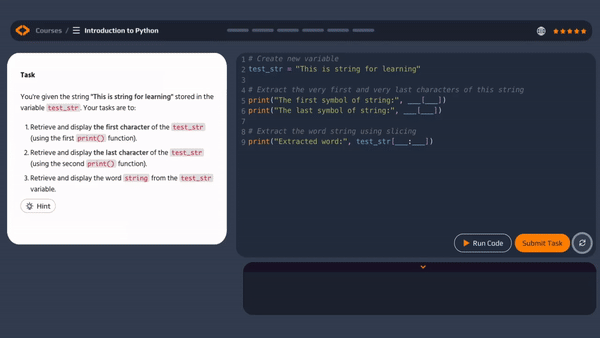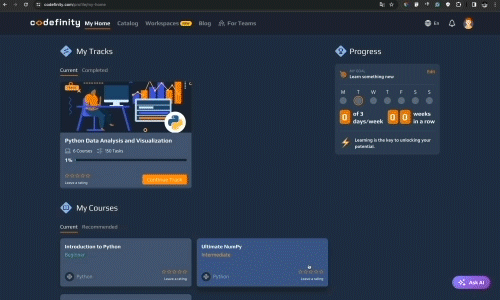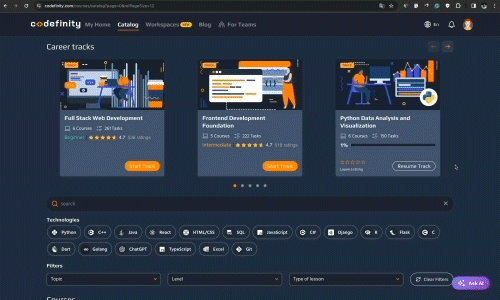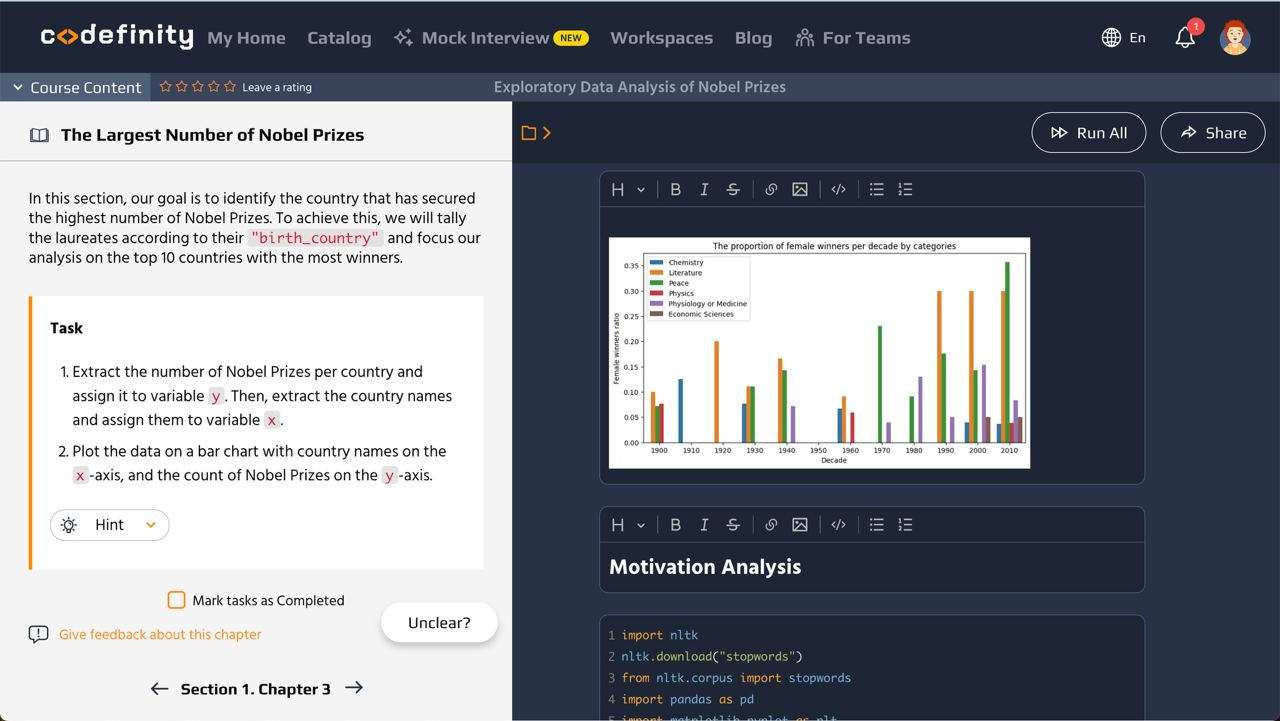Machine Learning Courses
course
Introduction to Machine Learning with Python
Intermediate
18 STUDYING NOW
Acquired skills: Machine Learning with scikit-learn, Model Training and Evaluation, Hyperparameter Tuning
course
Linear Regression with Python
Intermediate
1 STUDYING NOW
Acquired skills: Linear Regression with Python, Model Training and Evaluation
course
Classification with Python
Intermediate
4 STUDYING NOW
Acquired skills: Python Programming, Python Classification Models, Logistic Regression, Data Preprocessing, Model Training and Evaluation, Hyperparameter Tuning
course
Cluster Analysis with Python
Intermediate
2 STUDYING NOW
Acquired skills: Clustering fundamentals and algorithms , Handling missing and categorical data , Data normalization and distance metrics , K-Means: principles and cluster optimization , Hierarchical clustering and dendrograms , DBSCAN: noise handling and irregular shapes , Gaussian Mixture Models: probabilistic clustering
course
Mathematics for Data Science with Python
Beginner
10 STUDYING NOW
Acquired skills: Functions & Sets, Series Analysis , Limits & Derivatives , Integrals , Gradient Descent , Vectors & Matrices , Linear Transformations , Matrix Decomposition , Probability Rules , Bayes' Theorem, Statistical Measures , Probability Distributions
course
Data Preprocessing and Feature Engineering with Python
Beginner
6 STUDYING NOW
Acquired skills: Data Cleaning , Missing Value Imputation , Outlier Detection , Feature Encoding , Feature Scaling , Data Transformation , Feature Engineering , Feature Selection , Pipeline Building
course
Evaluation Metrics in Machine Learning with Python
Intermediate
2 STUDYING NOW
Acquired skills: Classification metrics (Accuracy, Precision, Recall, F1, ROC–AUC) , Regression metrics (MSE, RMSE, MAE, R²) , Clustering evaluation (Silhouette, Davies–Bouldin, Calinski–Harabasz) , Dimensionality reduction evaluation , Anomaly detection evaluation , Cross-validation techniques
course
Exploratory Data Analysis with Python
Beginner
Acquired skills: Exploratory Data Analysis, Descriptive Statistics, Data Visualization with matplotlib and seaborn, Correlation Analysis, Multivariate Analysis, Data Storytelling
course
Loss Functions in Machine Learning
Intermediate
1 STUDYING NOW
Acquired skills: Mathematical Foundations of Loss Functions, Risk Minimization Theory, Regression Loss Analysis, Classification Loss Analysis, Information-Theoretic Losses, Loss Function Selection and Comparison
course
Feature Encoding Methods in Python
Intermediate
Acquired skills: Weight-of-Evidence Encoding, Leave-One-Out Encoding, Helmert Coding, Backward Difference Coding, Polynomial Coding, High-Cardinality Feature Encoding, Encoding Leakage Prevention
course
Feature Selection and Regularization Techniques in Python
Beginner
Acquired skills: Overfitting and Regularization, L1, L2, and Elastic Net Regularization, Feature Selection Methods, Pipeline Construction, Hyperparameter Tuning, Coefficient Visualization
course
Optimization Methods in Machine Learning in Python
Beginner
Acquired skills: Mathematical Optimization, Gradient Descent, Convex Analysis, Stochastic Optimization, Momentum Methods, Adaptive Algorithms, Convergence Theory
Embrace the fascination of Tech Skills! Our AI-assistant provides real-time feedback, personalized hints, and error explanations, empowering you to learn with confidence.
With Workspaces, you can create and share projects directly on our platform. We've prepared templates for your convenience
Take control of your career development and commence your path into mastering the latest technologies
Real-world projects elevate your portfolio, showcasing practical skills to impress potential employers












































































Machine Learning Courses: Key Info and Questions
1. | Introduction to Machine Learning with Python | ||
2. | Linear Regression with Python | ||
3. | Classification with Python | ||
4. | Cluster Analysis with Python | ||
5. | Mathematics for Data Science with Python |





